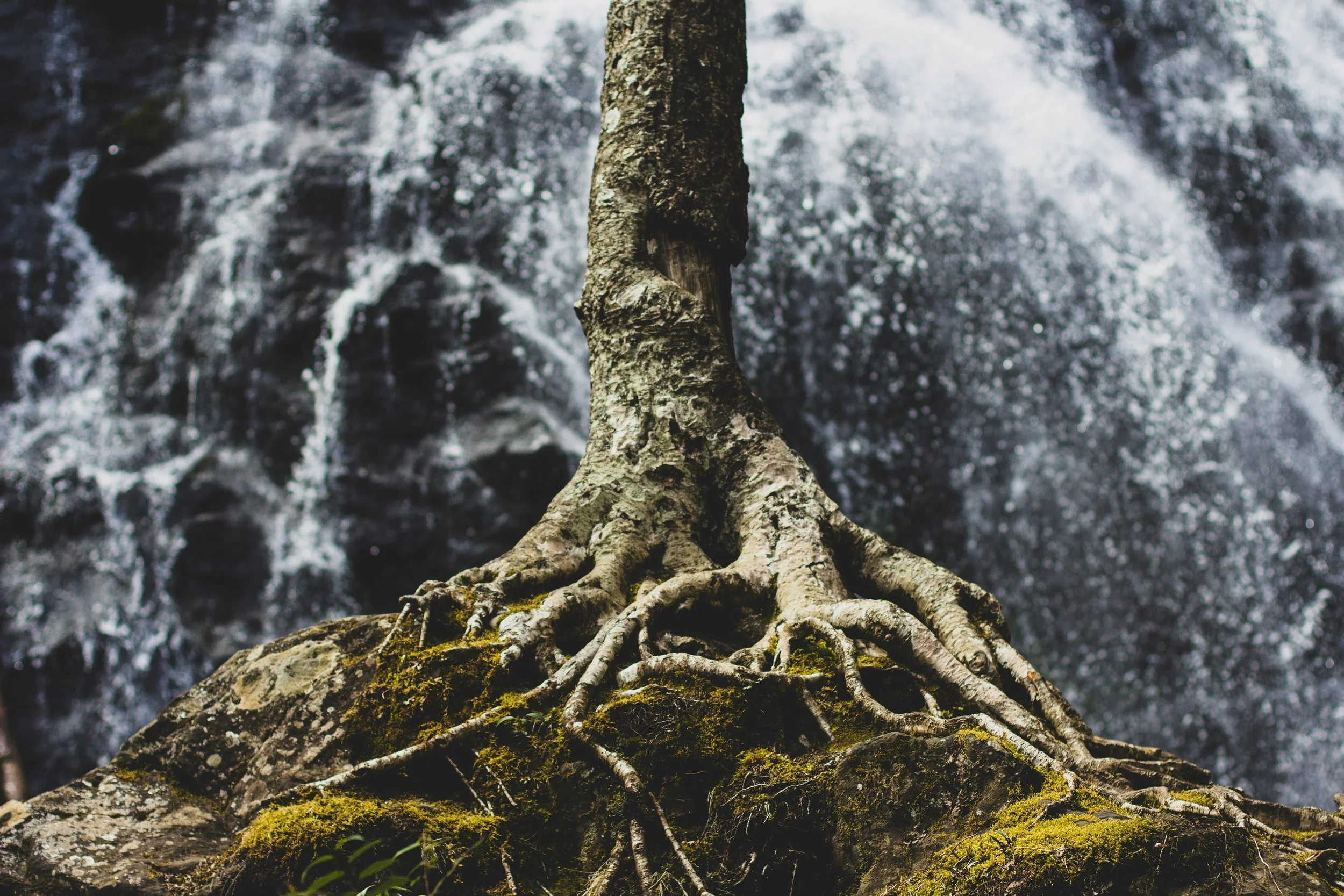You Are a Tree
I recently came across Joy Marie Clarkson’s little book You Are a Tree, and the opening pages stuck with me.
She writes about living a transient life—moving from place to place in childhood and ultimately arriving in England for school. One day she found herself staring out the window at a centuries-old pear tree. Its tangled, stubborn trunk had stood for hundreds of years. Children had climbed its branches. Generations had sat under its shade and eaten its fruit. Through storms, through centuries, it had endured.
It had roots.
Clarkson contrasted that tree with the waxy-leafed potted plant she had carried with her from apartment to apartment. Always portable. Never mingling its roots with the soil. A stranger to solid ground.
Then she writes this:
“I envied the impassive stability of these trees; they would go on sprouting, blossoming, changing colors with the seasons, not caring whether I stayed or left, lived or died. Oh, to be so stubborn in one’s being and one’s needs, so sure of one’s place in the world.
I am a potted plant, I said to myself. Always ready to be moved, never mingling my roots with those of my neighbors, a stranger to solid ground.”
I found that line, “I am a potted plant,” especially striking, naming something many of us feel.
Rootless in a Rootless Age
Modern life is totally rootless, isn't it? Maybe, like Clarkson, you’ve moved again and again. Or maybe you’ve stayed put geographically, but still feel you exist in zero gravity.
We are inebriated with freedom. The goal of our culture is to "make” ourselves. We belong to no one, owe no one anything, and care for only ourselves and those relationships we choose. We are told that freedom means mobility—never tied down, never obligated, never entangled.
But Scripture insists otherwise: we were made for roots.
From the Beginning
In Genesis 2, we’re given this vivid picture of human design. God forms Adam from the dust of the ground—earthy stuff, the same material as the trees, rocks, and rivers around him. Then God breathes life into him. Spirit and soil, image of God and creature of earth.
And where does God place Adam?
“In the garden of Eden.” (Genesis 2:8, 15)
Adam was made from the ground and placed in the ground. To work it. To keep it. To belong to it.
We are earthy, tactile, and embodied. We're not brains on sticks or ghosts temporarily inhabiting a shell. We are creatures with bodies, placed in space and time. And we weren’t meant to do it alone. God declares, “It is not good that man should be alone” (Genesis 2:18). To be human is to be rooted in place and in community; we're given coordinates, calendars, and community.
What This Means for Us
So what does that mean for our church?
It means that to live a truly human, God-designed life is to live like a tree:
When know where we are.. God has planted you somewhere—Greer, Lyman, Taylors. Not by accident. Not randomly. He’s put you in a garden. We aren’t called to be spiritual consumers, hopping from pot to pot. We are called to sink our roots into one another, to commit, to grow together over time. It also means we take a long view of what it is we're doing here. Roots don’t grow overnight. They deepen slowly, over years. It takes “stick-to-it-tive-ness” to remain in a place, with a people, long enough to weather storms and bear fruit.
When know when we are. And rootedness isn’t just spatial—it’s temporal too. We’re not the first generation of Christians to exist. We aren't the ones who have finally cracked the code on how to "do” church. We stand on the shoulders of brilliant, godly saints who came before us. We want to have a posture of humility towards them. We are aware of our spiritual forefathers, we embrace tradition, and we're thankful for their example. We are a modern expression of a timeless, ancient faith.
The Source of Our Roots
Of course, our roots aren't ultimately in place or tradition. Our roots are ultimately in the Lord Jesus.
Jesus said, “Unless a seed falls into the earth and dies, it remains alone. But if it dies, it bears much fruit.” (John 12:24)
That’s what Christ has done. He died on a tree, buried like a seed, and burst forth from the ground into resurrection life. Now, we are grafted into Him, the true Vine, the source of all growth and stability.
Our rootedness, then, is not just about geography or tradition. It’s about Him. The One who makes us sturdy. The One who nourishes us. The One who will one day welcome us into the garden-city, where we will finally eat from the tree of life, whose leaves are for the healing of the nations.

